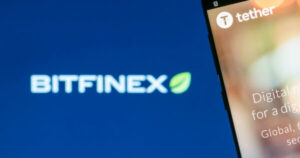The SEC’s Wells Notice to OpenSea Sparks Debate Over NFTs as Securities
By Extreme Investor Network | Last Updated: August 30, 2024

The recent Wells Notice issued by the U.S. Securities and Exchange Commission (SEC) to OpenSea, the leading NFT marketplace, has sent shockwaves through the digital art and collectibles industry. This regulatory move has raised significant questions about the classification of NFTs as securities, potentially impacting the future of this burgeoning market.
The SEC’s Focus on NFTs
The SEC’s decision to target OpenSea with a Wells Notice marks a critical juncture for the NFT industry. By considering certain NFTs on the platform as securities, the SEC could set a precedent that reverberates across the entire NFT market. This move not only puts OpenSea in the regulatory crosshairs but also threatens to disrupt the creative ecosystem that has flourished within the realm of digital art and collectibles.
As a prominent player in the NFT space, OpenSea has acted as a gateway for artists and collectors to engage with digital assets. The SEC’s potential enforcement action could introduce burdensome regulatory hurdles for creators, potentially stifling innovation and limiting opportunities for economic empowerment. The broad application of securities law to NFTs raises concerns about the future of creativity in a space that has provided artists with newfound avenues for expression and commerce.
One of the key challenges stemming from the SEC’s approach is the lack of clear guidelines for regulating NFTs. By targeting OpenSea, the SEC is entering uncharted territory that could extend beyond the digital art realm to impact a variety of collectibles, both physical and digital. The industry now faces the formidable task of defining the legal status of NFTs, a task that could shape the trajectory of digital art and decentralized platforms for years to come.
OpenSea’s Response and Implications
In response to the SEC’s actions, OpenSea has pledged $5 million to support the legal defense of NFT creators and developers who may face similar challenges. This proactive stance underscores the platform’s commitment to upholding the interests of the creative community and ensuring the continuity of innovation in the NFT space. However, the outcome of this legal battle will undoubtedly have far-reaching consequences for all stakeholders in the digital art and crypto communities.
Understanding Wells Notices and Their Ramifications
A Wells Notice from the SEC serves as a formal communication indicating the agency’s contemplation of enforcement action against a company for potential securities law violations. The implications of such a notice can be profound, particularly in a rapidly evolving market like NFTs. If the SEC proceeds with enforcement against OpenSea, it could herald a new era of regulatory scrutiny and compliance challenges for the entire NFT ecosystem.
The broader ramifications of the SEC’s potential classification of NFTs as securities extend beyond the digital realm. If the SEC succeeds in reclassifying NFTs, it could set a precedent for regulating various types of collectibles, ushering in a new era of oversight and compliance requirements. This shift could have a chilling effect on creativity and innovation, disrupting markets and imposing legal uncertainties on artists, creators, and collectors alike.
Do Digital Collectibles Equal Securities?
The debate over whether digital collectibles should be treated as securities underscores the complexities of regulating emerging asset classes. While NFTs may exhibit investment potential, they have traditionally been viewed as collectibles rather than financial instruments subject to securities laws. The application of securities regulations to NFTs could introduce unnecessary burdens and constraints on a market that has thrived on innovation and creative expression.
Opponents of classifying NFTs as securities argue for a nuanced approach that distinguishes between genuine investment products and collectibles. Such an approach would safeguard the interests of consumers and creators while fostering a vibrant and dynamic marketplace. It is essential for regulatory bodies to carefully consider the implications of broadening the scope of securities laws to encompass digital assets, ensuring that innovation and creativity are not stifled by regulatory overreach.
The ongoing debate surrounding NFTs as securities represents a pivotal moment in the evolution of digital art and collectibles. As the industry grapples with regulatory scrutiny, stakeholders must work together to navigate this challenging landscape while preserving the spirit of innovation that has defined the NFT market.

